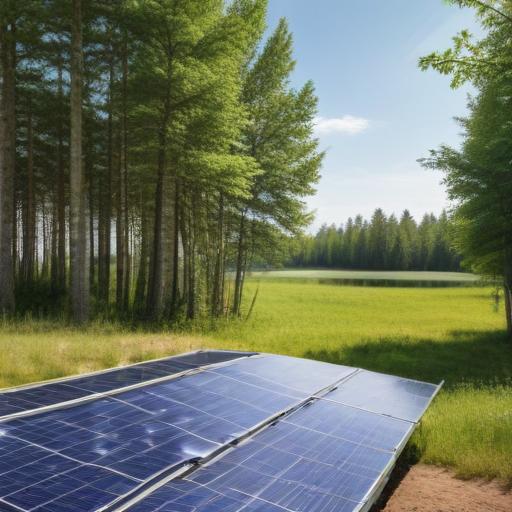Latvia is poised to enhance its clean energy capabilities with nearly €85 million in international funding for the renewable energy company Sunly. This financing, sourced from the European Investment Bank (EIB), the European Bank for Reconstruction and Development (EBRD), and SEB, will enable the construction of four solar parks across the country, contributing a total capacity of 329 megawatts (MW). This amount is sufficient to fulfill the annual electricity needs of approximately 180,000 households.
This initiative is a significant step in Latvia’s commitment to renewable energy, aiming not only to increase its energy independence but also to support the Baltic region’s transition towards clean power. The funding package includes €35.2 million from both the EIB and the EBRD, alongside €14.4 million from SEB. The solar parks are expected to be operational by early 2027 and will be strategically situated in different municipalities including Valmiera, Dagda, Madona, and Saldus.
EIB Vice-President Thomas Östros emphasized the importance of Latvia’s investments in hybrid solar energy, stating that they are essential for Europe’s energy transition. This project is also designed to evolve into hybrid facilities that will integrate wind energy and battery storage, enhancing reliability and efficiency within the energy grid while bolstering energy security.
With Latvia’s solar capacity already doubling in the past year from 305 MW in 2023 to around 660 MW at the end of 2024, this financing places Latvia on a promising path to reaching its long-term targets, which aim for 1.2 GW of solar capacity by 2030. The awareness of environmental needs and the market potential for renewables are clearly correlating with regional energy policies.
Sunly’s country manager for Latvia, Toms Nāburgs, asserted that the development of these solar parks will not only boost renewable energy generation but also stimulate economic growth in the regions, contributing to the country’s broader electrification and industrialization goals.
This ambitious venture will be funded on a non-recourse basis, ensuring that it does not depend on government subsidies or long-term power contracts, enabling it to operate effectively in a competitive energy market.
Overall, this project reflects a collective effort towards a sustainable future and aims to positively impact local communities through the support of socially significant initiatives while advancing Latvia’s energy independence. Sunly’s previous experience in the Baltics positions them well to navigate this growing landscape of renewable energy.
